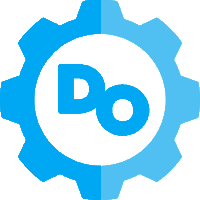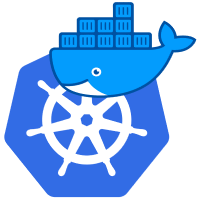25
AprHow do agile and DevOps interrelate?

Azure DevOps Course
How do agile and DevOps interrelate?: An Overview
DevOps and Agile possess a strong connection between them. Let’s first know what it means by Agile and DevOps. The later sections, in this tutorial,highlight What is Agile?, What is DevOps andHow Agile and DevOps interrelate?. Join our azure DevOps course , where your coding journey transforms into a remarkable tech adventure. Embrace the power of problem-solving and enroll today.
Read More: Top 50 DevOps Interview Questions and Answers
What is Agile?
Agile is an iterative methodology to software development and project management that assists the teams to quickly deliver value to their customers, without any hassles. Instead of delivering in a single go, an Agile team delivers work in tiny yet consumable increments. There is continuous evaluation of plans, requirements, and results. Therefore, the teams adopt a natural mechanism for quickly responding to change.
In simple terms, Agile represents the capability to create and retort to change. It focuses on handling and succeeding in a vague and unstable environment. Agile software development encompasses test-driven development, pair programming, planning sessions, stand-ups, and sprints. Basically, Agile software development is an umbrella term used for a set of practices and frameworks depending on the principles and values articulated in the Manifesto for Agile Software Development and the 12 Principles behind it.
What is DevOps?
DevOps is an assortment of optimization techniques that contains constantmanagement anddeployment. It collapses the barrier existing between production and process. Cross-functional units perform a significant role in supervising high levels of deployment. In nutshell, the development (Dev) and operations (Ops) make up DevOps.
Operations usually get affected by different changes. Therefore, to create novel product features, development is essential to carry components as fast as possible. Moreover, DevOps provides an effective principle for deployment with excellent efficiency. It is vital to undergo DevOps training to learn all its useful aspects. You can choose a suitable DevOps course in Hyderabad according to your requirements and budget.
Read More: Top 17 DevOps Tools You Must Know
Can Agile and DevOps work together?
A common misconception is DevOps and Agile cannot work together. This misconception adversely affects everybody involved in the software development as well as the delivery field. Both these approaches can prominently add to theScrum pillarsof inspection, transparency, and adaption to effectively allow product teams to set up, deliver and uphold complex products.
Both DevOps and Agile exemplify powerful ideas that can append value to the workflow of teams. The combination ensures the success of the organization.
Interrelation between DevOps and Agile:
Agile controls the development of software whereas DevOps focuses on bringing code into production and then optimizing the process. The corresponding processes are related to each other. Though both are different, they are highly interrelated. Essentially, both are key aspects of software development. It is known that Agile lays the foundation for DevOps and enables teams to develop software quicker. Henceforth, the launch of new products turns out to be more recurrent.
DevOps and agile might not seem the exact elements. However, they balance one another. Agile architecture holds on to the ideas expressed in The Agile Manifesto. It involves people and their connections with resources and processes. DevOps simply makes sure that technology is promptly conveyed to business units and that it functions without disturbance or hindrance. However, working software attains priority over detailed reports. Also, customer cooperation holds control over the negotiation process. Therefore, both these models interrelate with one another to stabilize the infrastructure.
Iterations of the new augmentations of software use requirements and practices laid by DevOps. So, there will be flawless deployment in hands of customers. It is important to note that DevOps outlines software requirements and then the Agile teams work on its development. In other words, DevOps creates software which the Agile teams test and deploy. The DevOps tutorial deeply highlights how DevOps work on software development.
Technology that involves DevOps and Agile:
There may be confusion on whether both these approaches coexist in any part of technology. The answer is yes. To impose DevOps to explore benefits like creativity and speed, the Agile development methodologies are used. Moreover, Agile development operates quickly, and therefore, there will be more consistent cycle responses.
Virtualization technology is known to be the technology that involves these two methodologies. This technology is powering all aspects of the business IT environment. Moreover, it facilitates the companies with the flexibility to scale resources as well as leverage both DevOps projects and Agile growth. With simultaneous integration of DevOps and adoption of Agile development, enterprises can improve their speed of software development and execution.
Common Myths about Agile and DevOps
- Agile is only for Software Development- Agile principles are used in several industries and not only in software development.
- DevOps is just about automation- This is a very common myth because automation is a key aspect of DevOps but there is more to it such as culture, collaboration.
- Agile and DevOps are the same- It is true that they are very similar but Agile focuses more on iterative development whereas, DevOps focuses more on collaboration aspects.
- Agile and DevOps eliminate the need for planning- It could be mistaken because of how adaptable and flexible they are but both of them need planning as well.
Why use Agile and DevOps Together?
There are several advantages of using both Agile and DevOps together such as:
- Using both enables faster delivery of high-quality software as iterative development and streamlining of deployment process go hand in hand.
- There is more enhanced collaboration as DevOps allows collaboration between development, operations, and other stakeholders and Agile within the cross-functional teams.
- It improves high software quality and reliability when testing and automation are integrated throughout the whole process of development and deployment.
- Using both Agile and DevOps practices together increases the efficiency to greater extents.
Various Software Life Cycle Processes that involve DevOps and Agile:
- Plan, Code, Build:
Test, QA, Security:
- Infrastructure orchestration:
- Continuous integration continuous delivery (CICD):
- Monitoring and Feedback:
- IT management:
In this life cycle process, the combination of Agile and DevOps offers transparency, a shorter build cycle, resource flexibility, internal & external feedback, and operational awareness.
There will be more testing across platforms and security becomes a team responsibility. Also, there will be sharing of ownership.
The combination of Agile and DevOps makes the infrastructure secure and scalable. Also, the combination leads to rapid provisioning and developer engagement.
There will be a shorter development/delivery software life cycle. The workflow becomes reliable and sustainable. Also, the app pipeline becomes secure.
It optimizes the flow of information to make sure failures don’t influence customer experience.
In this lifecycle process, the combination of Agile and DevOps emphasizes team goals. Also, it works on IT modernization, upskilling, and collaboration.
Summary
You might have understood very how both Agile DevOps interrelate, how they work together and what are technologies involved in doing so. To enhance your knowledge on the above topic, heck out our free courses on Azure DevOps certification to get an edge over the competition.
FAQs
Q1. What is the interrelation between Agile and DevOps?
Q2. How does DevOps work in Agile?
Q3. What is difference between DevOps and Agile?
Q4. What is the full form of DevOps?
Take our free devops skill challenge to evaluate your skill

In less than 5 minutes, with our skill challenge, you can identify your knowledge gaps and strengths in a given skill.







